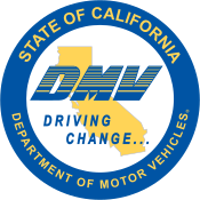Sacramento, CA… In response to the COVID-19 pandemic, the California Department of Motor Vehicles (DMV) today asked California law enforcement to exercise discretion for 60 days in their enforcement of driver license and vehicle registration expiration dates beginning March 16, 2020. The DMV is taking this action so that at-risk populations, including seniors and those with underlying health conditions, can avoid required visits to DMV field offices for driver license or vehicle registration renewals.

This 60-day period for driver license and vehicle registrations is intended to protect the health and safety of DMV customers who would otherwise have to come to a DMV office to take care of business, but are concerned during this coronavirus pandemic.
Those transactions that require a DMV office visit include new driver license, duplicate driver license, some driver license renewals, new license plates, complex vehicle registrations or title transfers and off-highway permits.
Those Californians who will benefit from this action include the elderly, those with compromised immune systems and those who are ill.
Transactions that fall within this action include driver license renewals for those:
70 years of age and older, who are required to take a knowledge test
Individuals who are required to renew in the office (last DMV visit was 15 years prior)
Individuals subject to vision testing
Individuals with complex driving history
The 60-day period also applies to vehicle registration renewals for customers who are not eligible to use an alternative service channel because of the following reasons:
Outdated insurance information
Registration expired for 90 days or more
Smog issues
Recent transfer
Dozens of DMV tasks can easily be taken care of through other channels including online, through the mail, through the 365 kiosks statewide or in our business partner locations.
California law enforcement is encouraged to exercise flexibility and discretion when reviewing driver license or identification and vehicle registration records. If applicable, DMV may waive vehicle registration penalties.
All DMV offices remain open at this time to process those transactions that must be taken care of in an office, including REAL ID. The DMV has implemented many process improvements and incorporated technological solutions to increase access to DMV outside of the office and decrease the amount of time someone has to spend at a DMV office.
For REAL ID, the federal government requires an office visit. REAL ID customers can fill out the online application before going into an office. In 23 offices throughout the state, customers can upload their REAL ID documents before their office visit. This option will be statewide by June.
###


